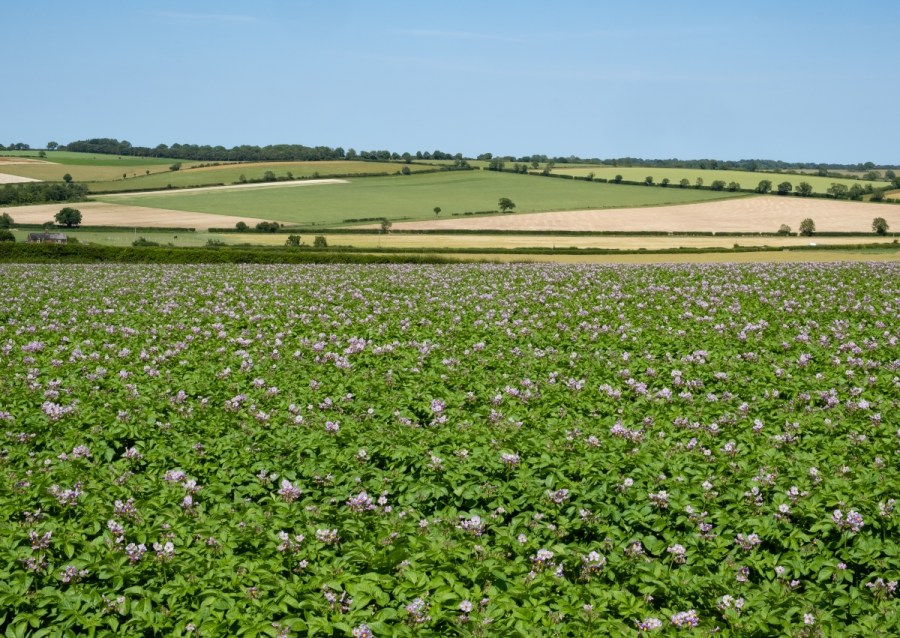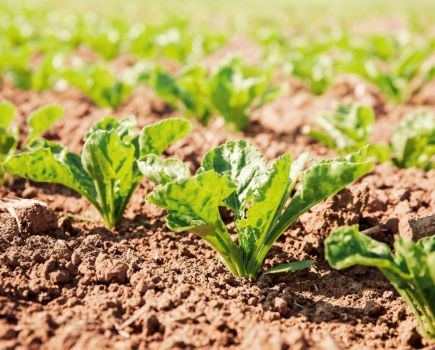As the potato sector sees more and more challenge on the back of a shrinking armoury and pressures from a carbon perspective, what are the solutions? CPM finds out more.
By Charlotte Cunningham
As 2021 draws to a close, it’s an apt time to reflect on the challenges and highlights of the year gone by, as well as the state of play for potato production and what may be on the horizon to aid growers.
There’s no doubt that the potato sector is facing many changes and challenges at present, and a Potato Grower Survey carried out recently by CWMR – commissioned by BASF – examined these in more detail.
“The aim of this was to get an up-to-date understanding of both the challenges growers are facing and the needs sought regarding crop protection now and expected in the future,” explains Sophia Sutherland, campaign manager at BASF.
The research was carried out in July this year and involved telephone quantitative surveys with farmers producing potatoes for fresh consumption, chipping, crisping and seed production. “In depth discussions were also carried out with a number of other growers, and a total of 11,367ha of potatoes was represented by the participants.”
As well as factors like motivations for growing potatoes and the importance of contracts, one of the key aspects of the research delved deeper into the challenges faced regarding potato production.
The results were complex, but could be divided into three key sections:
Markets:
- UK consumption of potatoes is declining and therefore higher competition between contracts
- Lack of promotion for a range of fresh potato varieties which limits the uptake of alternative varieties bred for disease or pest tolerances
- Paperwork involved with contracts and farm assurance is complex and time consuming (more so than for arable production)
Crop protection:
- Revocations, particularly diquat and oxamyl. More revocations expected including mancozeb
- Control of nematodes, both PCN and FLN
- Complexity of blight control
- Control of bacterial diseases, particularly common scab and blackleg with no effective treatments
- Timing desiccation to achieve the optimum tuber size specification
- Learning how to use bio-controls and biostimulants
Sustainability:
- Ensuring profitability
- Soil health for potatoes within the rotation
- Compliance with greening policies and supermarket environmental policies
- Water availability
- Integration of cover crops into potato rotations
- Carbon sequestration
“Sustainability – and concerns over sustainable businesses – underpin many of these concerns,” says Sophia. “What’s more, half of the growers surveyed agreed that there’s a lack of information and examples of sustainability practices that include potato production.”
The study also showed concerns over the availability and longevity of plant protection products, for everything from blight and alternaria – which is anticipated to becoming more difficult without mancozeb – to aphid control and potato skin diseases.
There’s a role for chemistry manufacturers to play in addressing these concerns, explains Sophia. From a BASF perspective, the firm says there’s a strong pipeline portfolio expected in the coming years, as well as its new Perfecting Potatoes Together campaign which aims to address concerns over the lack of information regarding sustainability and facilitate further knowledge exchange.
Speaking at a recent BASF briefing, Paul Goddard, business development manager (specialities) gave an update on the potato product pipeline, due for launch over the next three years. “The risks of growing speciality crops – including potatoes – is increasing and mitigations available for that are decreasing – so it’s a bit of a perfect storm for growers, agronomists and the wider sector.
“But from a BASF perspective, and in light of these challenges, we’ve invested in and are putting a core focus on potatoes.”
Paul adds that BASF has a jam-packed pipeline of products due to come through over the next few years and the table (on P66 in the PDF at top) highlights some of the key products to watch for.
(The October 2020 issue of CPM covered this in more detail)
Filling the gap
With the loss of AHDB Potatoes, BASF is aiming to fill some of the knowledge exchange gap with its new Perfecting Potatoes Together campaign. “We know there are many challenges which will require both cultural and chemical solutions, so we want to add more value than just bringing products to market,” explains Sophia.
There are three main pillars of the campaign. “Firstly, we want to facilitate a community to create a platform for the potato growing industry. Secondly, we aim to provide expert knowledge through colaboration with industry experts – including SRUC, Jersey Royals and Scottish Agronomy. And finally, we want to use all of this to innovate solutions based on grower-led research and development.”
The programme is in the very early stages and will be rolled out over the coming years, with the ultimate goal of facilitating regular regional community meetings. But what can growers expect in the short-term? “In 2022, we want to identify growers who we can work with and take forward on this journey. Those who we can give access to latest chemistry and who can trial it in a real farm scenario and provide us with feedback so we ensure we’re only bringing the most helpful solutions to market.”
Growers can sign up to the programme online to receive a plethora of information from the technical team, including monthly newsletters and visits to local events and trial tours.




